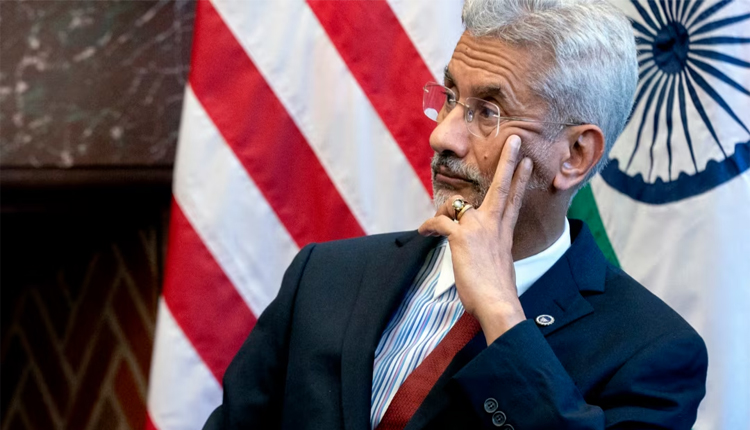New Delhi: The External Affairs Minister stated that India would not accept any terrorism after the attack on Pahalgam on April 22, 2025, in which 26 civilians lost their lives; he also stated that India would respond firmly to any future attacks coming from Pakistan.
On April 22, 2025, a terrorist attack in Jammu and Kashmir, Pahalgam, prompted severe tensions to form again between India and Pakistan. The attack killed 26 people, most of whom were tourists. Based on interviews he gave to France’s Le Figaro and Politico in Belgium during his recent tour, Mr S. Jaishankar did not spare harsh words about Pakistan’s support for terrorism and remarked that India will retaliate against terrorist bases, even those on Pakistani land, if it is attacked once more.
S. Jaishankar discussed his country’s proactive involvement, pointing out the 2016 Uri strikes and the 2019 Balakot airstrikes to prove India stands ready to answer back. After the Pulwama attack, in which 40 CRPF soldiers died, Uri was targeted in Pakistan-occupied Kashmir, while Balakot was attacked to hit a JeM training camp in Pakistan’s Khyber Pakhtunkhwa. It was explained that after the attack in Pahalgam, codenamed “Operation Sindoor”, Indian forces conducted operations at nine spots inside Pakistan and PoK and attacked groups such as Lashkar-e-Taiba (LeT), JeM, and Hizbul Mujahideen.
During an interview with Le Figaro, Jaishankar mentioned that Pakistan supports terrorism and gives cover to terrorists like the members of LeT, who terrorised Mumbai during the 2008 attacks. During the interview with Politico, he said that if someone violates India, it can respond within the country or outside it, implying India’s transformation to take action where needed.
He made these remarks in line with the defence minister’s instructions to officials after a meeting held by Prime Minister Modi. Many world leaders, like U.S. President Donald Trump, French President Emmanuel Macron, and UK Prime Minister Keir Starmer, have supported the minister’s stand on the attack and agreed to help India fight terrorism.
During his interview with Politico, Jaishankar said that blaming terrorism on the Kashmir issue is an unacceptable crime against international laws. Further, in an interview with Dutch De Volkskrant, he mentioned that “Many of the UN’s most wanted terrorists are operating in public in Pakistan’s major cities.” Although the Security Council described the terrorist attack as “seriously condemnable”, it did not mention the Resistance Front (TRF) because of protests from Pakistan and China.
Khawaja Asif said that the Pakistani authorities were preparing for another Indian attack, and Shehbaz Sharif assured the world that Pakistan was not involved. Yet, India broke off the Indus Waters Treaty, shut the Attari border, and reduced its diplomatic status, causing the tensions to grow.
Following Pahalgam, India’s attitude sends a strong message that it will keep working hard and warns that it will go wherever terrorism originates. More steps taken in diplomacy and warfare are being closely observed worldwide, as there is a chance for escalation in what happens between India and Pakistan.



Comments are closed.